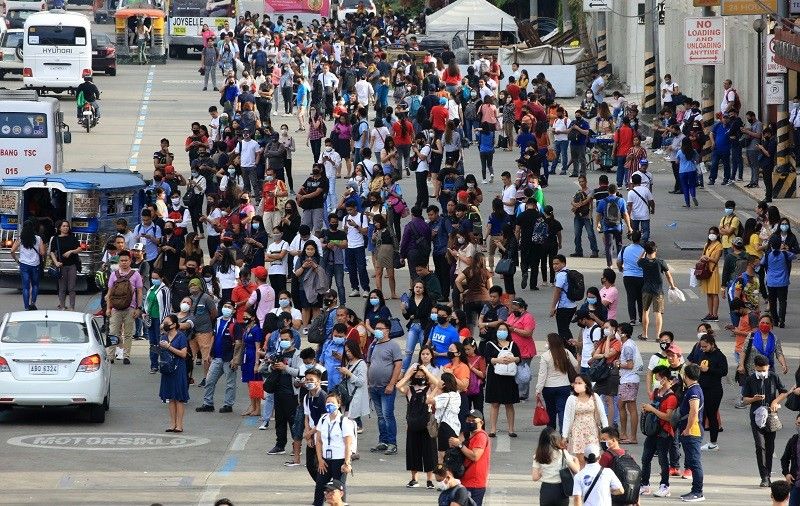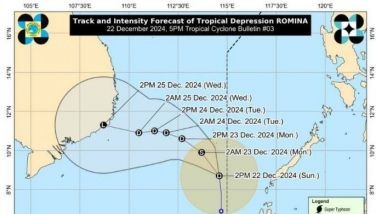Policymakers wait as coronavirus stalls data collection

MANILA, Philippines — The impact of the coronavirus disease-2019 (COVID-19) on the economy may already be distorting economic data in an unprecedented manner, but for policymakers, the availability of data crucial in crafting sound policies is the more immediate challenge.
From government spending figures to that of foreign direct investments, government data that would show the true state of economy are getting delayed, a direct result of lack of reports from private sources as well as skeleton workforces combing through voluminous pile of documents.
“We are encountering difficulties in obtaining data from our data sources…Banks are not able to provide the BSP with the complete data sets needed to produce these statistics,” Bangko Sentral ng Pilipinas (BSP) Governor Benjamin Diokno said in a text message on Thursday.
In one instance, BSP’s depository corporations survey, which measures money supply, was delayed by a month. The agency released the survey’s February edition only last April 27, way behind the original schedule of March 31.
As a result, the release of March figures was also pushed back from the tabled April 30.
The Bureau of the Treasury also has the same problem. National Treasurer Rosalia de Leon admitted the agency is already way behind its April 24 schedule to release the government’s cash operations report (COR) for the first quarter.
That report is crucial since it would show the initial impact of the Luzon lockdown on state revenues and spending, which per the finance department’s preliminary tally, were already showing some weakness due to business closures and dismal consumption.
“We are having problems particularly for those involving other agencies since we need to reconcile data from our end to those of other agencies,” De Leon said in a text message. The COR for March will be released Friday.
Public access, public policy
On face value, delays in data publication may appear to only block the timely access to information of the public. While that is equally important, data-dependent policymakers like officials from the BSP may also struggle crafting policies without updated figures.
Money supply, for instance, is a crucial indicator to monitor whether BSP decisions to lower interest rate and bank reserves in March and April are translating to more credit. Diokno admitted delays would have some impact on BSP’s work, “but not that much.”
“These temporary impediments will not impact policymaking greatly as BSP uses all available information in the formulation of policies,” Diokno said.
Not all is like BSP however. At the budget department, Undersecretary Laura Pascua, who sits at the Executive Technical Board recommending economic targets, admitted the agency “would need those data of BSP and Treasury to complete the picture” of our assessment.
To date, officials are not yet done recalibrating assumptions due to the coronavirus pandemic. For observers and investors, these figures are vital benchmarks to gauge government performance. “This is also a unique situation since everyone is affected so we need to look at a lot of things,” Finance Assistant Secretary Ma. Teresa Habitan said in a recent phone interview.
At the Philippine Statistics Authority, the repository of most government data, National Statistician Claire Dennis Mapa also had to make do with 136 data sets to calculate the first-quarter national income accounts. This was only equivalent to 87.2% of the 156 data sets needed to generate the closest estimate, although figures are typically revised.
More than delays, quality
Jose Ramon Albert, senior research fellow at state-funded Philippine Institute for Development Studies, said data quality had always been a problem in the government, even in normal times. “The fact is even before the pandemic, there is evidence that the entire statistical system’s outputs have been going down,” he said.
“With the pandemic, definitely data users particularly economic planners should be cautious about data now,” Albert added.
Just last March, the social welfare department launched its cash aid program for the poor affected by the pandemic using a five-year-old data to approximate the number of poor families. As a result, local government units complained that more families than estimated were actually asking for help.
Long-term fixes on data gathering were being set specifically in PSA before the outbreak hit. One such solution is setting up “technical committees” or “experts” within the agency to tackle specific sectors.
Such plans would have to wait however as everyone gets busy addressing the pandemic’s impact, which by itself would need data. “The reality is decision and plans must (still) be made,” Albert said.
- Latest
- Trending





























